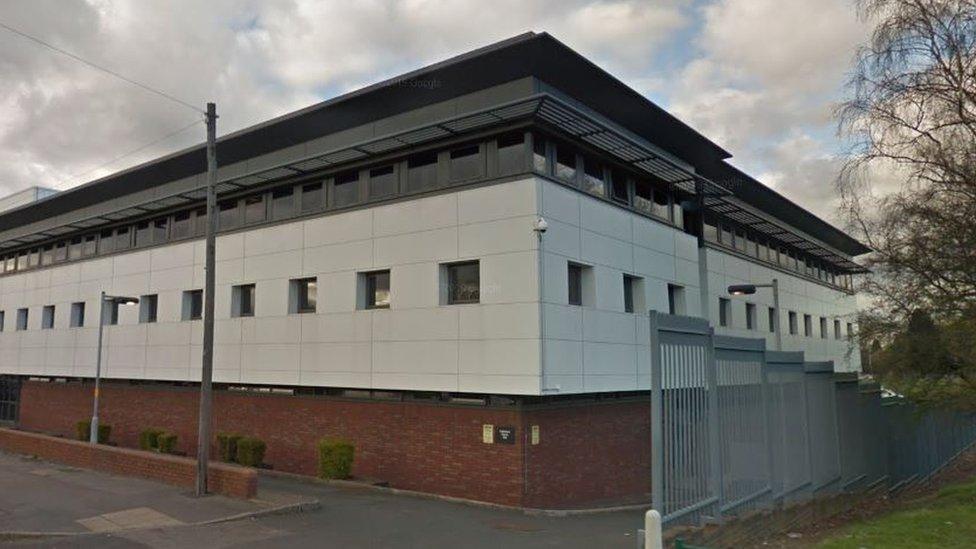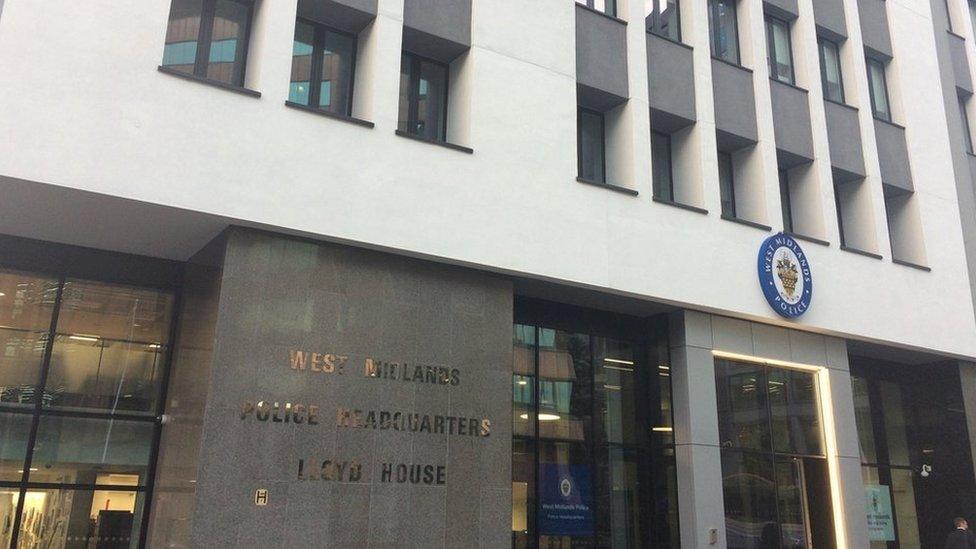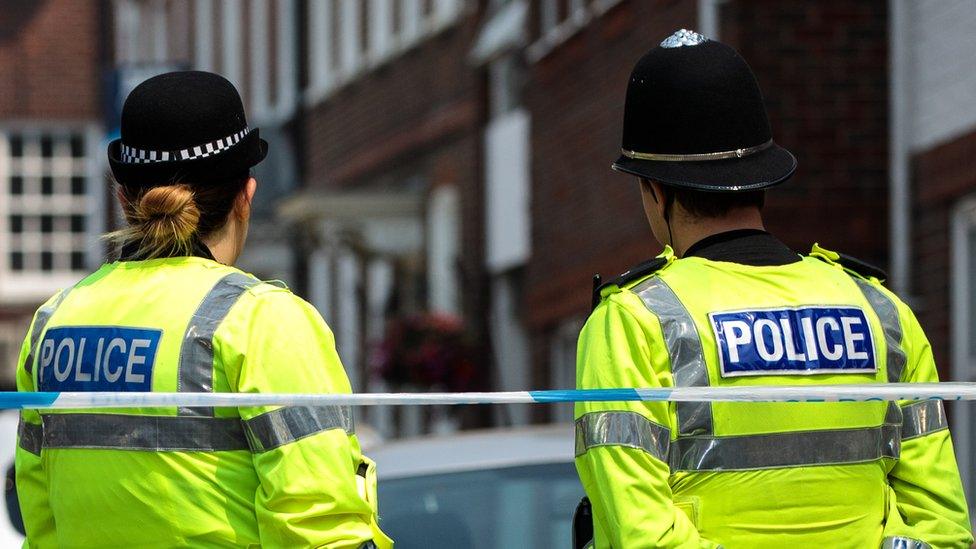West Midlands Police forensic officer: 'I felt so uncared for'
- Published

Andrea told the BBC graphic content seen by forensic analysts "stays with you"
A former forensics officer who quit due to the toll on her mental health says unpaid volunteers sought by West Midlands Police will likely be left to cope alone with seeing graphic content.
The force was criticised over concerns about how well volunteer staff would be supported.
Job advertisements made clear successful applicants could be exposed to "distressing [and] indecent images".
But former analyst Andrea* said staff had no help dealing with such content.
In her role collecting evidence, she said she saw reports about animal abuse and graphic descriptions of injuries.
She said she was diagnosed with PTSD but felt uncared for, telling the BBC she did not think an intake of volunteer digital forensic analysts would be well looked after.
The West Midlands force says it "cares deeply about our people's wellbeing".

Andrea's story:
"Within a few weeks of starting at Ridgepoint House, the West Midlands centre for forensics, I was depressed.
"We nicknamed it 'No Point House' - the whole place is just horrible. There is no support, managers don't follow up if you're having problems, there is a lot of depression.
"Our job was to go out and collect evidence, sometimes from suspects. They used to send you out in pairs but now they send you out alone. Evidence is missed because there's not enough staff.
"We deal with Section 18 crimes and above - attempted murder - but when it was quiet we dealt with lower-level cases. There were a lot of sexual abuse cases... the stuff you see with no training and no support - it's crazy.

Andrea and her colleagues nicknamed Ridgepoint House "No Point House"
"Your colleagues show you where to sit and you just have to get on with it.
"It's worrying [the job has been advertised] for volunteers. Even just reading stuff in logs is distressing.
"The job is pitched at newbies who want to get trained up. They'll mostly be going through mundane things, but they'll stumble into the nasty side of forensics.
"You can find a lot of stuff... things you read in the logs stay with you.
"I went to my manager to ask for counselling and I was told I had PTSD. They said they'd check up on me within two weeks but there was no follow-up. It really angered me.
"Things were happening with me at work that should have been picked up on and weren't.
"I ended up leaving because of my depression, but when I did there was no leaver's interview - they didn't care. They didn't even ask me why I wanted to leave.
"I felt so uncared for - I was ushered out while everyone was on holiday so nobody would ask why I had gone.

The volunteer role with West Midlands Police was criticised as "a disaster waiting to happen"
"I'm not the only one either - in my old team only one of them has been there for more than two years. There's been a higher turnover of staff since we first started to notice cuts about four years ago.
"They [volunteers] have got to have the support, but if staff can't get support, how will volunteers?
"West Midlands Police are creating a minefield - people will end up demanding compensation because they've been traumatised.
"Analysts do the job they do because they care, but they don't feel cared about."

In a statement, West Midlands Police said all of its staff and volunteers had round-the-clock access to trained counsellors "as a bare minimum".
It also said it carried out enhanced checks and psychological support for colleagues who were required to "look at disturbing images of abuse".
The force previously said the volunteers it sought would not replace staff but support investigations as digital evidence became "more vital", with the recruitment process reflecting the importance of their welfare.
*Name has been changed

Follow BBC West Midlands on Facebook, external, on Twitter, external, and sign up for local news updates direct to your phone, external.
- Published13 June 2019

- Published28 March 2019

- Published8 February 2018

- Published16 November 2018

- Published20 January 2016
